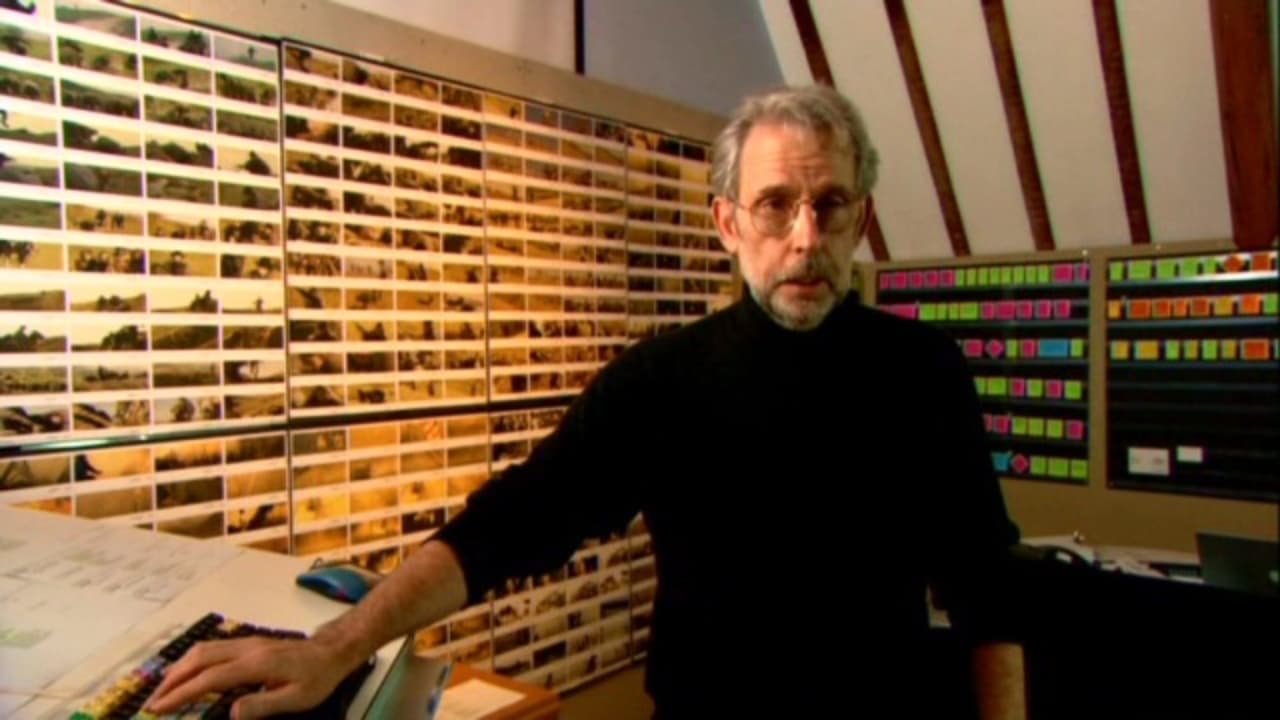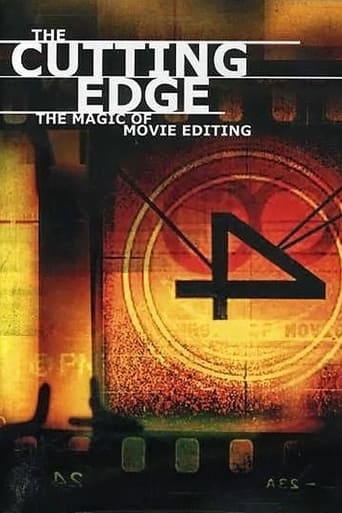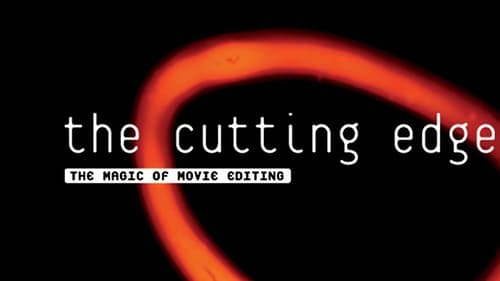KnotMissPriceless
Why so much hype?
UnowPriceless
hyped garbage
Mabel Munoz
Just intense enough to provide a much-needed diversion, just lightweight enough to make you forget about it soon after it’s over. It’s not exactly “good,” per se, but it does what it sets out to do in terms of putting us on edge, which makes it … successful?
Brendon Jones
It’s fine. It's literally the definition of a fine movie. You’ve seen it before, you know every beat and outcome before the characters even do. Only question is how much escapism you’re looking for.
TBJCSKCNRRQTreviews
This is one of the two feature-length documentaries on the 2-Disc Special Edition DVD of Bullitt. With a running time of 95 minutes, it is the longer one, by about 12 minutes. It consists of interviews and film clips(old, new, fiction, documentary(including propaganda works), famous and unknown, and a little real life footage; note that there are spoilers for many of the movies) used as examples or such, and narrated well by Kathy Bates. It is ironic that the invisibility and underrating of the role of the editor is somewhat shown by the fact that a couple of the directors here are actors first(big names, of the kind that draw attention), but other than that, I can say nothing negative about this. Everyone here has something to say(no, I know, I didn't expect much from Rob Cohen, the man behind xXx, either), and those who have the most to offer genuinely *are* the ones we see for the majority of this. Speaking as someone who *loves* the art of cutting, I can't say if this will be as compelling to those who aren't into the craft, however, this is clearly made for said group, and if you find yourself in it, you will not regret watching this. Before seeing this, I would not have dared suggest that one could successfully tell the history of its development and cover this amount of ground on the "theory" of it(like the line I quote in the summary, to give just one example) in a mere hour and a half. The whole thing is extremely interesting and informational. It has a great sense of humor without trying too hard. The numerous analogies and the like are excellent. As is fitting for the subject, this is put together rather well. There is a little strong language in this. I recommend this to anyone who wants to know more. 8/10
Woodyanders
This excellent, engrossing and extremely illuminating documentary covers the evolution of the crucial craft of film editing from the silent era to the modern age. Editors initially started out as key, but anonymous contributors to motion pictures who in the 40's and 50's had to staunchly adhere to certain strict guidelines. D.W. Griffith played a substantial part in developing editing as a significant component of movies. The Russian filmmakers of the 20's and the French New Wave directors of the 50's further revolutionized editing by willfully breaking certain established rules. Many different aspects of film editing are extensively covered in fascinating detail: montage, juxtaposition, jump cuts, creating a rhythm, the challenge of cutting chase sequences, the importance of sound, the powerful fusion of sound and image, fragmenting time and space, the difficulty of cutting sex scenes, and the contemporary style of rapid-fire fast cutting. Moreover, we learn that the editor is the most objective person to work on a movie, plays a major role in telling the story, and often works very closely with the director in the post-production process. Such famous directors as Martin Scorsese, Steven Spielberg, Quentin Tarantino, and James Cameron discus the necessity of editors in the whole film-making process. Editors Sally Menke (who was specifically hired by Tarantino to cut "Reservoir Dogs" because he thought a female editor would be more nurturing), Dede Allen, Mark Goldblatt, Zach Staenberg, Craig McKay, Michael Tronick, Donn Cambenn, Alan Heim, and especially Walter Murch all relate great stories about editing various pictures. Kevin Tent in particular has a choice anecdote about how he paid director Alexander Payne 75 dollars to cut a specific sequence in "Election" a certain way that wound up being used in the finished feature. George Lucas hits the nail right on the head when he describes editing as "visual poetry." Kathy Bates provides the perfectly sober and respectful narration. Essential viewing.
donf
This is a remarkable documentary, informative, interesting and successful in clarifying what is, for many, something of a mysterious process. The contributions to film making of directors, actors, designers, cinematographers and sound recordists is self evident, but the film editor's role has seldom been understood nor its importance fully recognised. This documentary is the first to give directors and editors an opportunity to explain exactly what goes on in the editing room and they have done it superbly. What a pity then, that references to the history of film editing woven into this story are cursory, inadequate and in some instances completely wrong. Martin Scorsese refers to Edwin Porters' 1902 film, Life of an American Fireman, as the very first film to be edited using crosscutting as a structuring device, and the commentary supports this view, despite convincing evidence to the contrary that was discovered in 1978. In fact the earliest discovered examples of this practise date from 1906. Equally mistaken is the assertion, made several times in this prize-winning documentary, that D.W.Griffith originated the important editing practise of action matching. In fact there is clear evidence of action matching in a British film made as early as 1903 and Griffith's first film was not made until 1908. There is considerable evidence that Griffith considered action matching to be of very little importance, and when used in his films it is often ill judged and clumsy. All this is curious in a documentary that seeks to explain the history and practise of film editing. One might have expected research on the topic to be as well informed as the comments made by most of the contributors, particularly given that the scriptwriter is Professor Mark Jonathan Harris of the School of Cinema and Television, University of Southern California.
mgoodwin88
This is a first-rate job of work, one of the best documentaries on film-making that I've ever seen, opening up the fascinating world of film editing by letting great editors and directors speak to us directly about the mysteries of film cutting--supported by illuminating examples drawn from real films. I can't praise too highly the thoughtful choice of speakers, from Thelma to Dede to Walter Murch and on down the line. Nice to see director Joe Dante too. I was particularly pleased at the inclusion of early film editing examples, such as Dziga Vertov's Man With a Movie Camera and, of course, the down-the-stairs sequence from Potemkin. (The film includes a few sequences from later films that echo the Potemkin sequence, but I bet there's at least five examples they missed!) Bravo! Michael Goodwin


